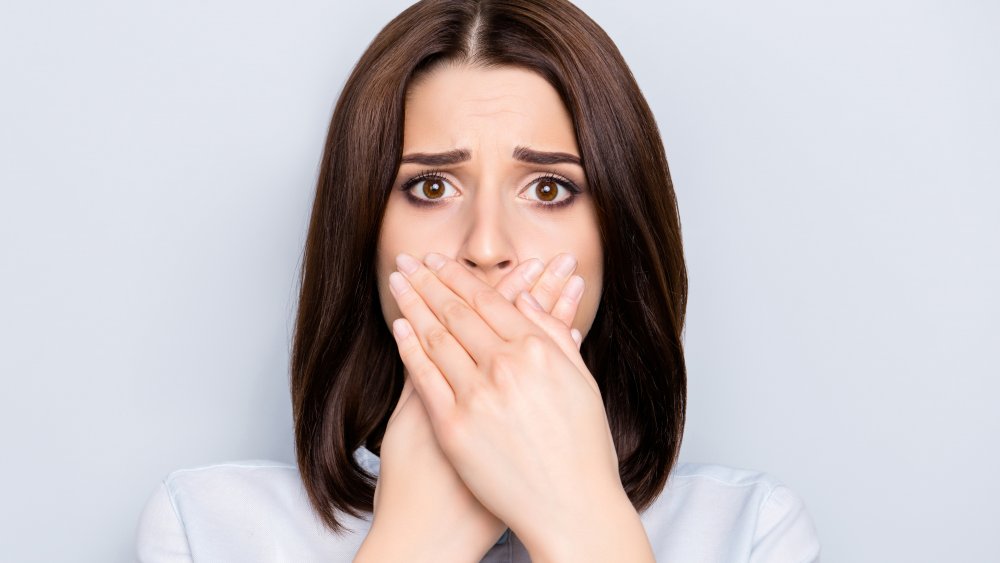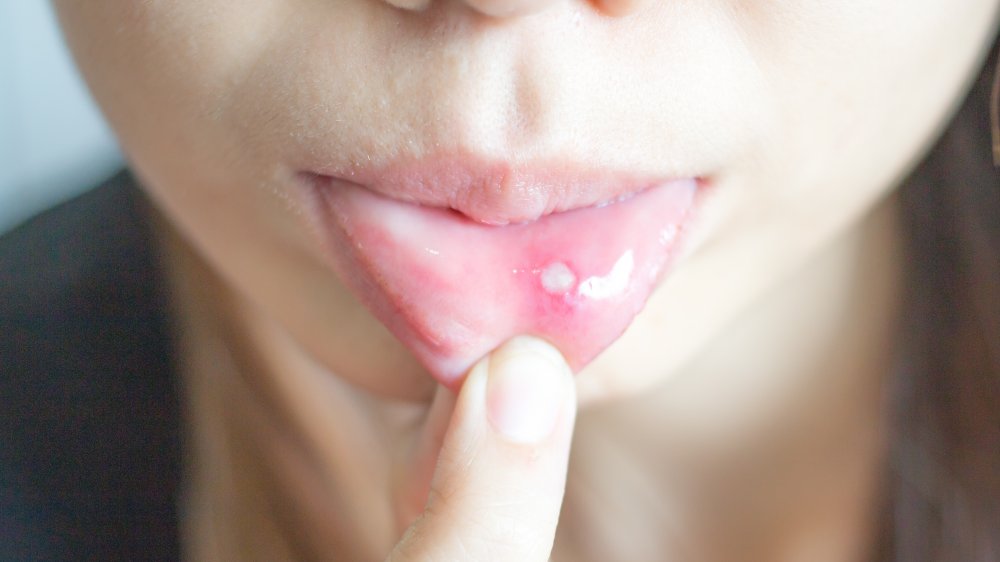What Really Causes Canker Sores?
Canker sores are small, they can be white or yellowish, and they can hurt like nobody's business, making it challenging to eat, talk, or drink. They can range in size, being smaller than one millimeter or as big as an inch in diameter.
According to Cleveland Clinic, there are two types of canker sores. Simple canker sores appear around three to four times a year and can go on for about a week. And then there are complex canker sores, which are less common and tend to present themselves in people who have had canker sores before. Mayo Clinic, however, uses a different classification system for canker sores and notes that there are multiple kinds. In describing canker sores, they included minor and major sores and also added a third type: herpetiform canker sores, which are caused by herpes virus infection.
There are various causes for canker sores
Doctors aren't exactly sure what causes canker sores, or "aphthous ulcers," but they do know that simple canker sores come about when a minor injury happens inside the mouth. Ibuprofen and certain fruits and vegetables that have high acidity make them worse (via Cleveland Clinic). Mayo Clinic says the ulcers can be triggered by stress, food sensitivities, and an allergic response to something you might have eaten. Cankers sores can also show up because of underlying conditions like celiac disease and irritable bowel syndrome.
While there are no treatment options for simple, or minor, sores, there are a few things you can do to help speed up the healing process. These include rinsing your mouth with salt water or a baking soda mixture; dabbing a bit of milk of magnesia on the sore throughout the day; avoiding acidic, spicy, or salty foods which could trigger irritation (and more pain); applying ice to the sores; and brushing your teeth as gently as possible. Canker sores should go away on their own, but if they persist, it may be time to see a doctor, as noted by Mayo Clinic.

